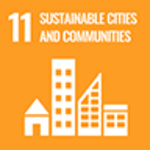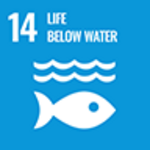Hokkaido University, in collaboration with the National Institute of Polar Research and the Japan Agency for Marine-Earth Science and Technology (JAMSTEC), has launched the Arctic Challenge for Sustainability III (ArCS III) . ArCS III is the largest comprehensive Arctic research project in Japan, and will be carried out from April 1, 2025 to the end of fiscal year 2029 with the support of the Ministry of Education, Culture, Sports, Science and Technology's Subsidy Program for Promoting Environmental Technology and Other Accelerated Development.
The Arctic is the region where the effects of global warming are most evident, and the rapid changes in its natural environment are having a major impact on the environment and ecosystems of the entire planet, including the mid-latitudes. Therefore, the development of interdisciplinary research is required to contribute to solving social issues related to the sustainability of the Arctic. In addition, it is an urgent task to eliminate the observation gaps in the Arctic, understand the actual state of environmental changes, and improve the reliability of future predictions based on that understanding.
This project is a further development of Japan's Arctic research projects, which have been continued by the GRENE Arctic Climate Change Research Project, ArCS, and ArCS II since FY2011. As shown in the figure below, it consists of 10 research topics based on three strategic goals and 7 research platforms that support them. By utilizing observation infrastructure (research vessels, Earth observation satellites, etc.), simulation systems, data systems, etc., we will advance understanding of the polar environment, while also developing new fields by leveraging the strengths of the interdisciplinary Arctic research community, nurturing the next generation of researchers, and fostering awareness of social issues. We will achieve the project goal of "creating comprehensive knowledge to solve social issues caused by changes in the Arctic environment and society" and contribute to Japan's international mission in Arctic research and Arctic policy.
From Hokkaido University, researchers from a wide range of fields, including natural sciences, humanities and social sciences, and engineering, are participating in the ArCS III project. In particular, Professor Tomonori Sato Faculty of Environmental Earth Science will lead the research on the "climate disaster issue" as the representative of the project, and Professor Hiroji Ueno Faculty of Fisheries Sciences will lead the research on the "biodiversity issue" as the representative of the project. In addition, we will continue our interdisciplinary research in Greenland, where we have had a proven track record, in collaboration with the local community. Furthermore, we will be responsible for human resource development projects to train the next generation of Arctic researchers, centering on the Arctic Arctic Research Center. In addition to sending young researchers and graduate students overseas, including to the Arctic region, we will provide a comprehensive polar education program, including practical training and special lectures both domestically and overseas.

Overall structure and project goals of the ArCS Ⅲ project.

A map centered on the Arctic (edited from a map published by the Arctic Environment Research Consortium and the National Institute of Polar Research). The Arctic region is the area north of 66.5 degrees north latitude, where the midnight sun occurs in summer and the polar night occurs in winter.

Greenland cityscape

Glacier survey in Greenland by Hokkaido University graduate students
























